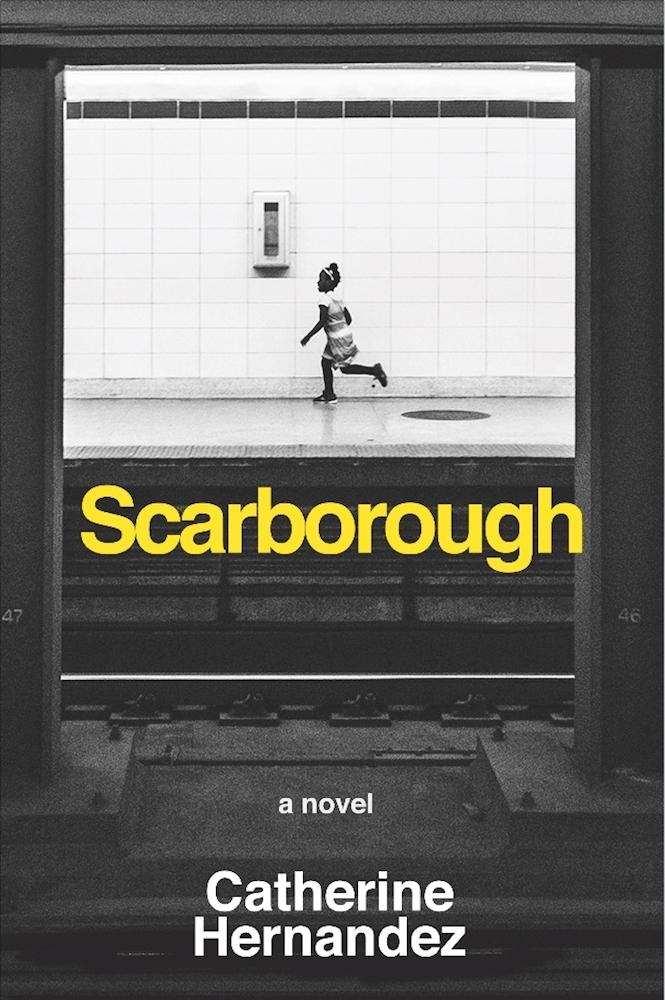Newsletter: International Literacy Day
In honour of International Literacy Day, we invite you to join Professional Communication at The Creative School as we explore the theme of literacy through the lens of equity, community, and inclusion. It is our hope that the selected texts, publications, and resources below will help to reflect on how deeply language, reading, and writing impact the communities in which we live.
Scarborough
by Catherine Hernandez
From the publisher: Scarborough the novel employs a multitude of voices to tell the story of a tight-knit neighborhood under fire: among them, Victor, a black artist harassed by the police; Winsum, a West Indian restaurant owner struggling to keep it together; and Hina, a Muslim school worker who witnesses first-hand the impact of poverty on education.
Scarborough offers a raw yet empathetic glimpse into a troubled community that locates its dignity in unexpected places: a neighborhood that refuses to be undone.

How language shapes the way we think (TED Talk)
by Lera Boroditsky
Summary excerpt: There are about 7,000 languages spoken around the world -- and they all have different sounds, vocabularies and structures. But do they shape the way we think? Cognitive scientist Lera Boroditsky shares examples of language -- from an Aboriginal community in Australia that uses cardinal directions instead of left and right to the multiple words for blue in Russian -- that suggest the answer is a resounding yes. "The beauty of linguistic diversity is that it reveals to us just how ingenious and how flexible the human mind is," Boroditsky says. "Human minds have invented not one cognitive universe, but 7,000."

Etymology (WORD ORIGINS)
with Helen Zaltzman of The Allusionist podcast
From the website: The brilliant and dazzling Helen Zaltzman, host of The Allusionist podcast and person who technically for a living researches the origins of language and thus is an etymologist, visits Alie's apartment to chat about various word origins, gender in language, the Bible a.k.a The Oxford English Dictionary, origins of the filthiest slang, emoji decoding, mediocrity, step parents, babies wearing glasses, Greek kimonos, the romance of languages and the fundamental truth that languages is always changing whether you want it to or not.

Phonology (LINGUISTICS)
with Nicole Holliday
From the website: Vocal fry. Code switching. Black Twitter. Valley girls. Culture vultures. WE'RE TALKING ABOUT TALKING. Alie battles traffic to sit down with linguistics professor Dr. Nicole Holliday about intonational phonology: how tones and pitch help us bond with others and construct identities.

Why Quebec's New Language Law is Stirring Controversy
Front Burner Podcast
From CBC: Bill 96, Quebec's newly adopted language law, is meant to protect the use of French in areas such as education, government services, courts and the workplace. But there has been a fierce backlash against it from some Indigenous communities, advocates for immigrants and refugees, business owners, and experts who say it infringes on an array of human and legal rights.
Emilie Nicolas, a columnist with Le Devoir and the Montreal Gazette and host of Canadaland's French-language podcast Detours, walks us through some elements of the new law that critics find contentious.

Everything Irie: Examining the Occurrence of Jamaican Patois in the Greater Toronto Area
by Danielle Taylor
Excerpt: This Major Research Project (MRP) by graduate of The School of Professional Communication's Masters of Professional Communication program, Danielle Taylor, examines the occurrence of Jamaican patois in the Greater Toronto Area (GTA) among people of a Caribbean ethnic or cultural background. This project supplies data on the demographic characteristics of Jamaican patois speakers in the GTA and the situational contexts in which they use the language.

Giving voice to the street: a case study of Toronto’s Street Voices magazine
by Miranda Feasey
Text Excerpt: This Major Research Paper by graduate of The School of Professional Communication's Masters of Professional Communication program, Miranda Feasey, investigates Street Voices Magazine as an instrument and communications tool to engage and empower street youth in Toronto. The following questions guided my study: What are the ways in which Street Voices Magazine gives voice to the marginalized and silenced?

The dawn of the Somali written word: an analysis of the creation and implementation of the Somali written language
by Warsan Amin
Excerpt: My major research paper (MRP) by graduate of The School of Professional Communication's Masters of Professional Communication program, Warsan Amin, is grounded in the history of Somalia’s first orthography implemented in 1972 by President Mohamed Siad Barre. This meant that for the first time in Somali history, there would be a written language that mirrored the Somali oral tradition in all its complexity.

